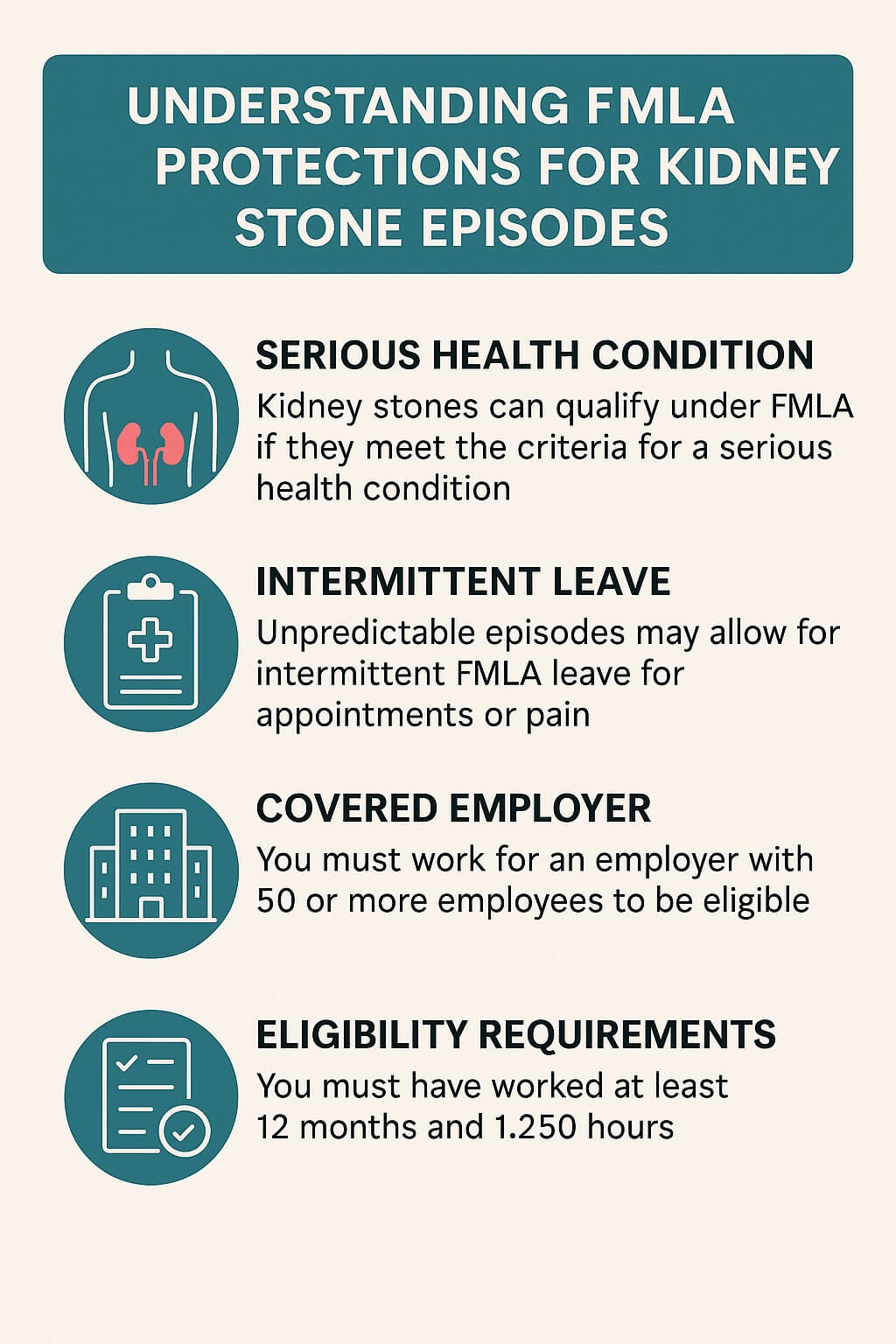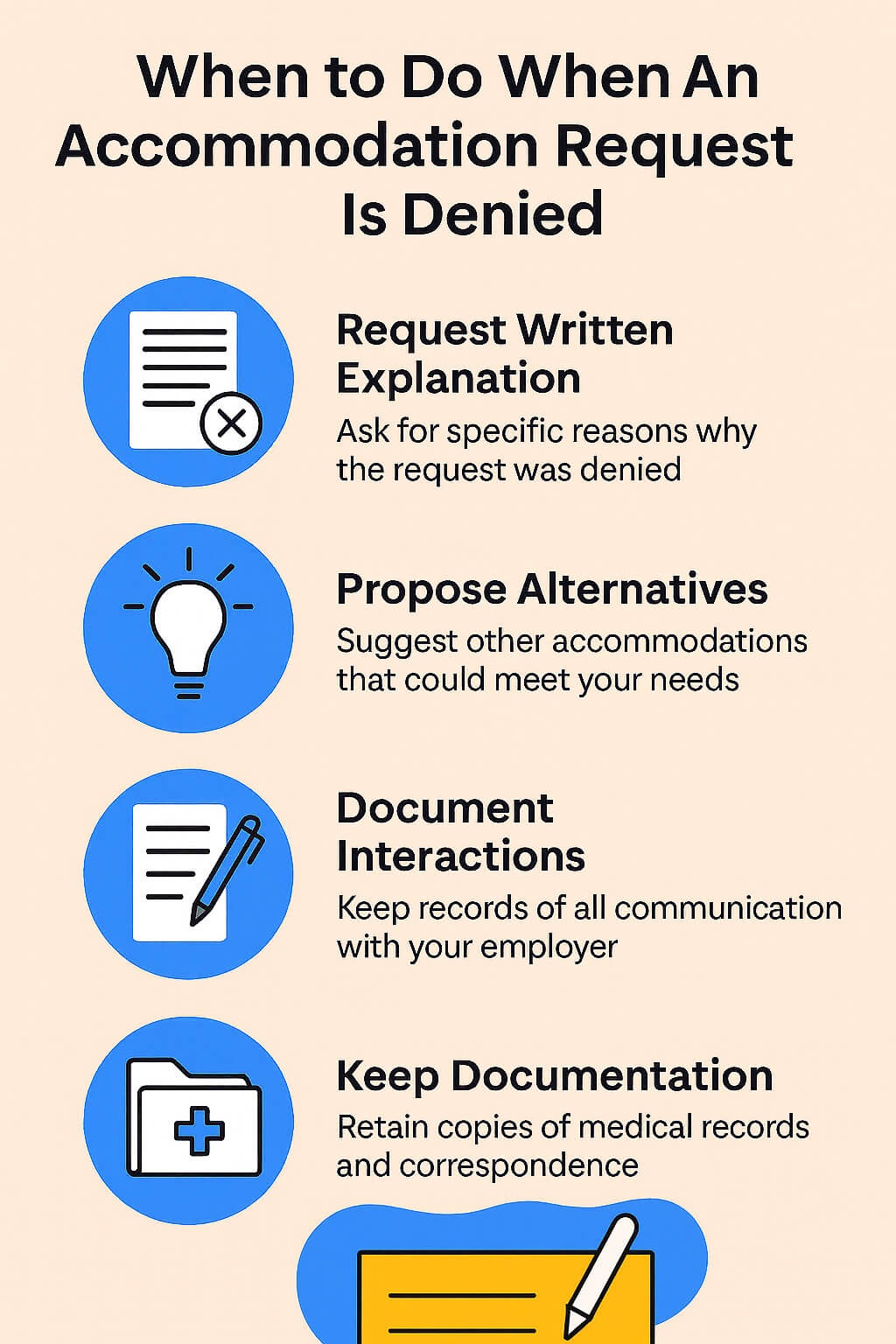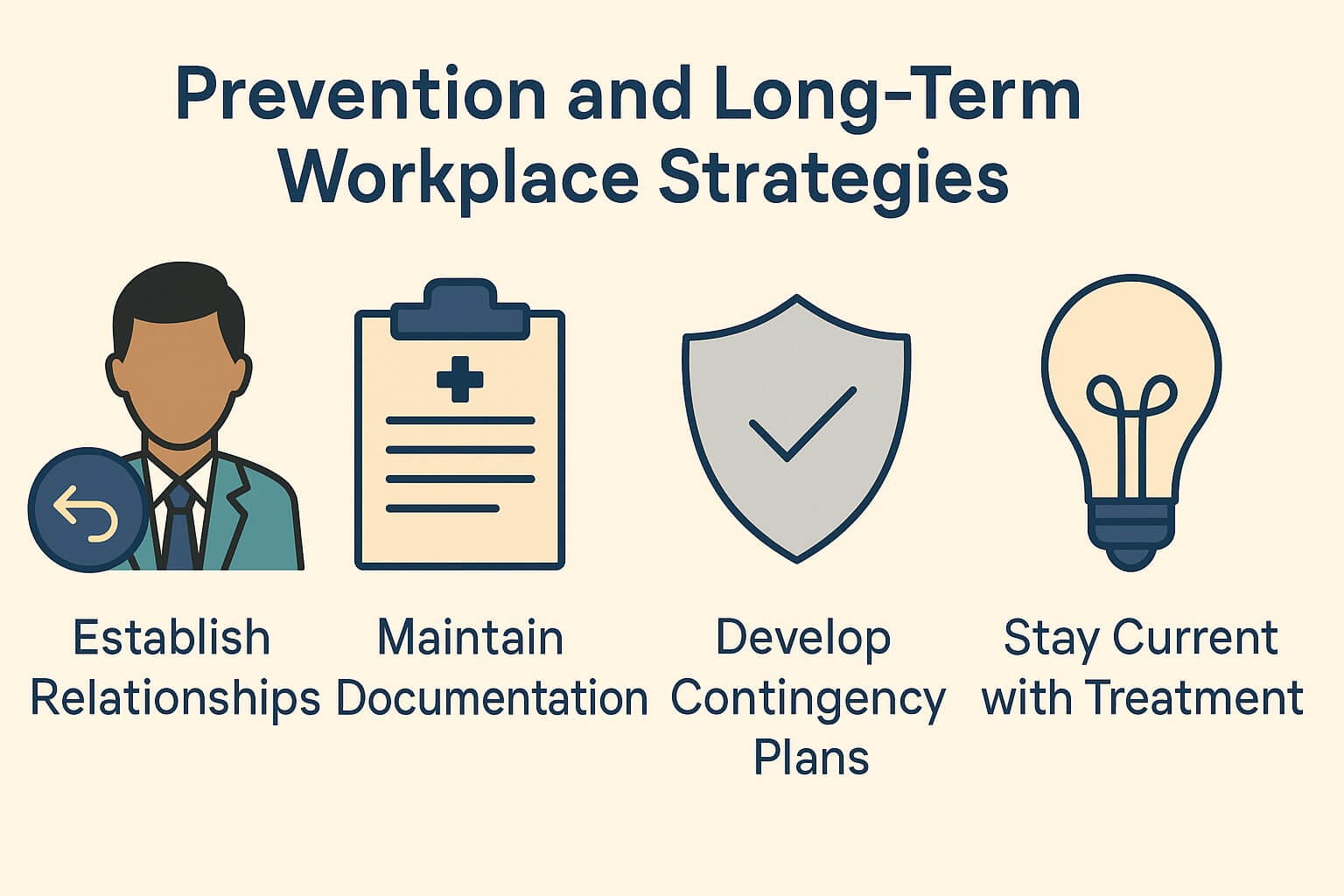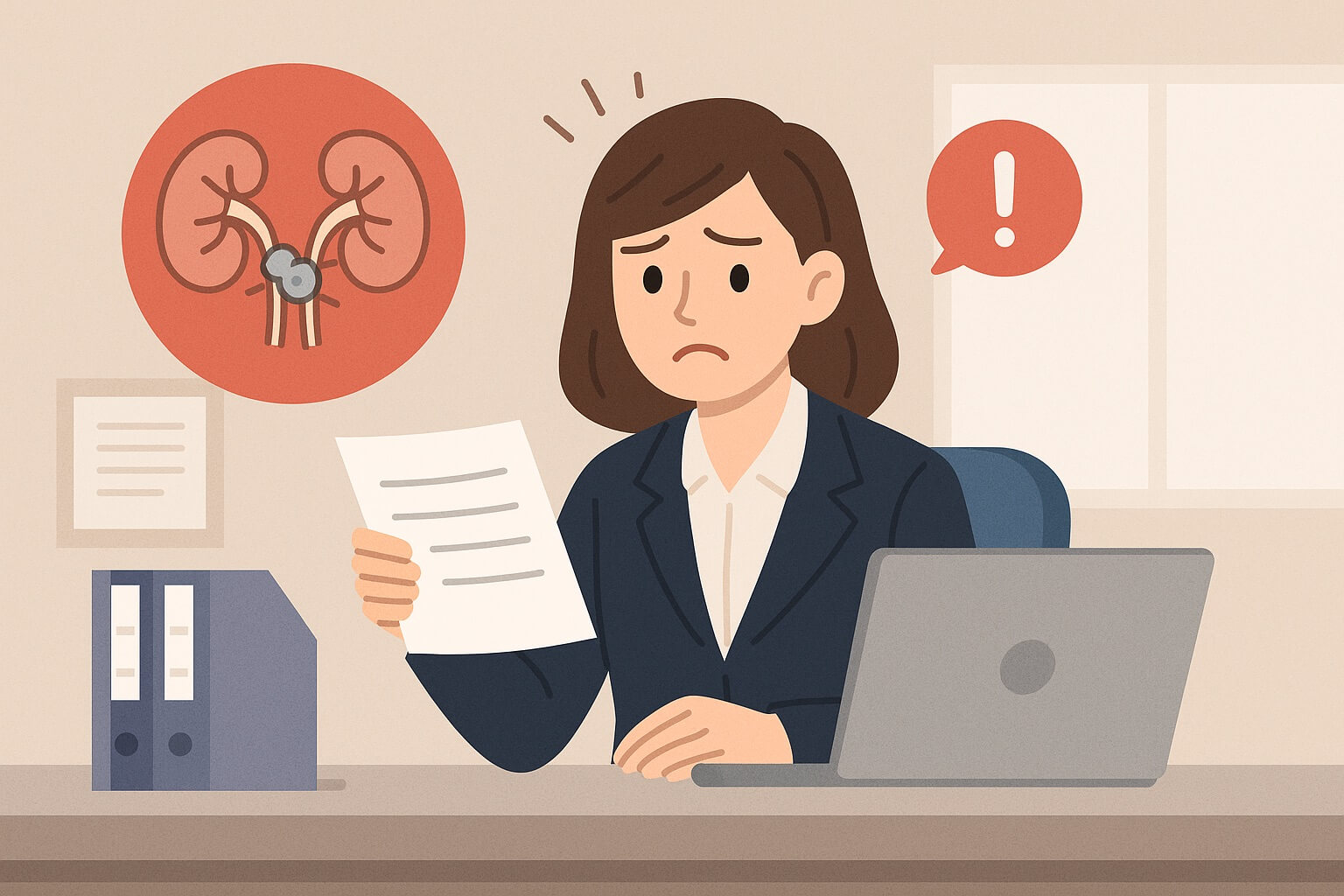When Can Kidney Stones Qualify as a Disability Under the ADA?
The relationship between kidney stones and disability protections under the Americans with Disabilities Act (ADA) is complex and depends heavily on the specific circumstances of your condition. Temporary or short-term conditions may not qualify. If kidney stones cause significant impairment, protections may apply, including reasonable accommodations at work or public services.
The key factor is whether your kidney stones substantially limit one or more major life activities. For many individuals experiencing acute kidney stone episodes, the severe pain, frequent urination, nausea, and inability to concentrate can create significant limitations in working, sleeping, and other essential functions. The unpredictable nature of kidney stone pain, which can strike suddenly and render someone incapacitated, may also qualify as an impairment that substantially limits major life activities.
However, courts have been inconsistent in their treatment of kidney stones under the ADA. Even if kidney stones were a disability under the ADA, an employer did not violate the ADA by not providing the plaintiff’s requested accommodations of “flexibility in her schedule” and a reduced work load for an indefinite period of time, according to a federal district court in Utah. This highlights the importance of requesting specific, time-limited accommodations rather than open-ended arrangements.
The duration and severity of your symptoms play a crucial role in determining ADA coverage. Chronic kidney stone formers who experience recurring episodes may have stronger claims for disability protection than those experiencing their first isolated incident.
What Accommodations Can You Request for Kidney Stones?
When kidney stones qualify as a disability under the ADA, employers must provide reasonable accommodations unless doing so would cause undue hardship. Remote Work: Ask to work from home if commuting or being physically present at the workplace is challenging. Extra Breaks: Take longer or more frequent breaks if you feel tired.
Remote work represents one of the most logical accommodations for kidney stone sufferers, particularly given the unpredictable bathroom needs and severe pain episodes that can occur. The ability to work from home eliminates the stress of commuting during pain episodes and provides access to private restroom facilities, which is especially important for individuals who need to strain urine to collect stone specimens for medical analysis.
Flexible scheduling accommodations might include modified start times to accommodate morning medical appointments, the ability to leave work for urgent medical care, or adjusted deadlines during acute episodes. Workplace modifications could involve access to a private restroom, permission to keep pain medications at your workstation, or the ability to change positions frequently to manage discomfort.
An employment counselor had a kidney stone, which required monitoring from a healthcare provider. The employer granted ADA leave as an accommodation so the employee could seek medical treatment. Once recovered, the employee was able to return to work full duty. This demonstrates that temporary medical leave can be a reasonable accommodation for kidney stone treatment.
How Strong Is Your Medical Documentation?
The strength of your medical documentation significantly impacts your ability to secure workplace accommodations. Document Your Needs: Collect medical papers explaining your condition and how it affects your work. Your doctor’s note should go beyond simply stating that you have kidney stones and should detail specific functional limitations.
Effective medical documentation for kidney stone accommodations should include the frequency and severity of episodes, specific symptoms that impact work performance, expected duration of the condition, and detailed accommodation recommendations from your healthcare provider. The documentation should explain why traditional workplace arrangements pose challenges and how the requested accommodations would address those specific limitations.
Your physician should describe the unpredictable nature of kidney stone pain, the necessity for frequent bathroom access, potential side effects of pain medications that might affect concentration, and any restrictions on lifting or physical activity. If you’re required to collect stone specimens, the medical documentation should explain this requirement and the need for private restroom access.
Understanding FMLA Protections for Kidney Stone Episodes
The Family and Medical Leave Act (FMLA) may provide additional protections for kidney stone sufferers, particularly those experiencing recurring episodes or complications requiring ongoing medical care. Second, there will likely be a question about whether your condition qualifies as a “serious health condition” under the FMLA. Since it sounds as if you were under the care of a doctor throughout this period, its likely that you at least have an argument.
Kidney stones can qualify as a serious health condition under FMLA if they require inpatient care, continuing treatment by a healthcare provider, or result in incapacity for more than three consecutive days with ongoing medical treatment. The unpredictable nature of kidney stone episodes may also qualify for intermittent FMLA leave, allowing you to take time off as needed for medical appointments or acute pain episodes.
There must be a medical need for intermittent leave, and a certification is the proof of it. Intermittent FMLA leave can be particularly valuable for kidney stone sufferers who experience unpredictable episodes that may require sudden medical attention or result in temporary inability to work.
To qualify for FMLA protection, you must work for a covered employer (generally 50+ employees), have worked for at least 12 months, and have completed at least 1,250 hours of work in the previous 12 months. An employer may, when an employee requests FMLA leave for a serious health condition, request a medical certification by the employee’s health care provider to confirm that a serious health condition exists.

What to Do When Your Accommodation Request Is Denied
When your initial accommodation request is denied, you have several options before considering legal action. The interactive process required under the ADA means that your employer should engage in good-faith discussions about alternative accommodations if your initial request isn’t feasible.
Request a written explanation for the denial, including specific reasons why the accommodation would cause undue hardship or is not reasonable. This documentation becomes important if you need to file a complaint later. Consider proposing alternative accommodations that might address your needs while being less burdensome for the employer.
If remote work is denied, you might propose modified work schedules, private office space, job restructuring to eliminate non-essential functions that are difficult to perform during episodes, or temporary reassignment to a position better suited to your limitations during treatment.
Document all interactions with HR and management regarding your accommodation requests, including dates, participants, and specific statements made. Keep copies of all medical documentation and correspondence. This paper trail becomes crucial if you need to file an EEOC complaint or pursue legal action.

State Law Protections That May Exceed Federal Requirements
Many states have disability discrimination laws that provide broader protections than the ADA or apply to smaller employers. Some state laws have different definitions of disability, lower employee thresholds for coverage, or more expansive accommodation requirements.
Research your state’s specific disability discrimination and family medical leave laws, as they may provide additional protections for kidney stone-related accommodations. Some states require accommodation for temporary conditions that wouldn’t qualify under the federal ADA, while others have more generous medical leave provisions.
Local ordinances in some cities and counties also provide disability protections that may apply to your situation. These laws can sometimes fill gaps in federal protection, particularly for employees of smaller companies or those with temporary conditions.
Building a Compelling Case for Remote Work Accommodation
When requesting remote work accommodation for kidney stones, focus on demonstrating that your essential job functions can be performed from home and that the accommodation directly addresses your disability-related limitations. Emphasize the medical necessity rather than convenience factors.
Highlight specific challenges that make office work difficult during kidney stone episodes, such as the unpredictable need for bathroom access, severe pain that makes commuting dangerous, nausea and vomiting that create workplace disruption, side effects from pain medications that affect concentration, and the need to collect stone specimens in a private setting.
Propose specific remote work arrangements, such as temporary work-from-home during acute episodes, hybrid arrangements that reduce commuting stress, or full remote work during active stone passage periods with return to office once medically cleared.
Address potential employer concerns by demonstrating your ability to maintain productivity, participate in meetings via video conference, meet deadlines and deliverables, communicate effectively with colleagues and supervisors, and maintain data security and confidentiality standards from home.
When to Consult an Employment Attorney
Consider consulting an employment attorney if your employer refuses to engage in the interactive process, denies reasonable accommodations without justification, retaliates against you for requesting accommodations, fails to maintain confidentiality of your medical information, or threatens termination related to your condition.
You have a claim for disability discrimination in violation of the Americans with Disabilities Act (ADA). Under the ADA, an employer is required to provide reasonable accommodation unless it poses an undue burden on the employer. An experienced employment attorney can evaluate whether your situation warrants legal action and help navigate the complex intersection of ADA and FMLA protections.
Many employment attorneys offer free consultations for potential discrimination cases and work on contingency fees, meaning you don’t pay unless you recover damages. They can also help you understand the timeline for filing EEOC complaints and preserve your legal rights while attempting to resolve issues internally.
Alternative Strategies When Formal Accommodations Fail
If formal accommodation requests are unsuccessful, consider informal arrangements that might address your needs without triggering legal compliance concerns for your employer. This might include voluntary schedule flexibility, temporary project assignments that can be completed remotely, or cross-training colleagues to cover your responsibilities during medical absences.
Explore whether your employer offers short-term disability benefits that could provide income replacement during kidney stone treatment and recovery. Some employers have more flexible sick leave policies that might accommodate your needs without formal ADA processes.
Consider whether a temporary reduction in hours or unpaid leave of absence might be acceptable alternatives to termination. While these options have financial implications, they may preserve your employment relationship and benefits while you recover.
Prevention and Long-term Workplace Strategies
For individuals prone to recurring kidney stones, developing a long-term workplace strategy is essential for maintaining employment stability. This includes establishing relationships with understanding supervisors, maintaining detailed medical documentation of your condition’s impact on work, developing contingency plans for handling work responsibilities during episodes, and staying current with treatment options that might reduce episode frequency or severity.
Consider whether career changes might better accommodate your condition’s unpredictable nature. Some positions naturally offer more flexibility for medical conditions, such as consulting work, freelance opportunities, or roles with established remote work cultures.
Building a track record of strong performance during healthy periods can provide leverage when requesting accommodations during medical episodes. Demonstrating your value to the organization makes employers more likely to work with you to find mutually beneficial solutions.

Citations
- National Kidney Foundation. “Your Rights: ADA Accommodations and FMLA Leave for CKD, Dialysis, and Transplant Recovery.“
- Disability, Leave & Health Management Blog. “Schedule Flexibility and Lighter Workload for Indefinite Period Not a Reasonable Accommodation…Even if Kidney Stones Are a Disability.“
- JustAnswer. “Is treatment for kidney stones covered under the ADA?“
- U.S. Equal Employment Opportunity Commission. “Enforcement Guidance on Reasonable Accommodation and Undue Hardship under the ADA.“
- JustAnswer. “Should I Take Time Off Work for Kidney Stones?“
- Job Accommodation Network. “Renal/Kidney Disease.“
- ADA National Network. “Reasonable Accommodations in the Workplace.“
- National Kidney Foundation. “Employers’ Guide.“
- U.S. Equal Employment Opportunity Commission. “Work at Home/Telework as a Reasonable Accommodation.“
- The National Law Review. “Struggling with Intermittent FMLA Leave.“
- U.S. Department of Labor. “FMLA-87.“
- Avvo Legal Answers. “KIDNEY STONES-was I protected under any law for being terminated due to having Kidney Stones?“
